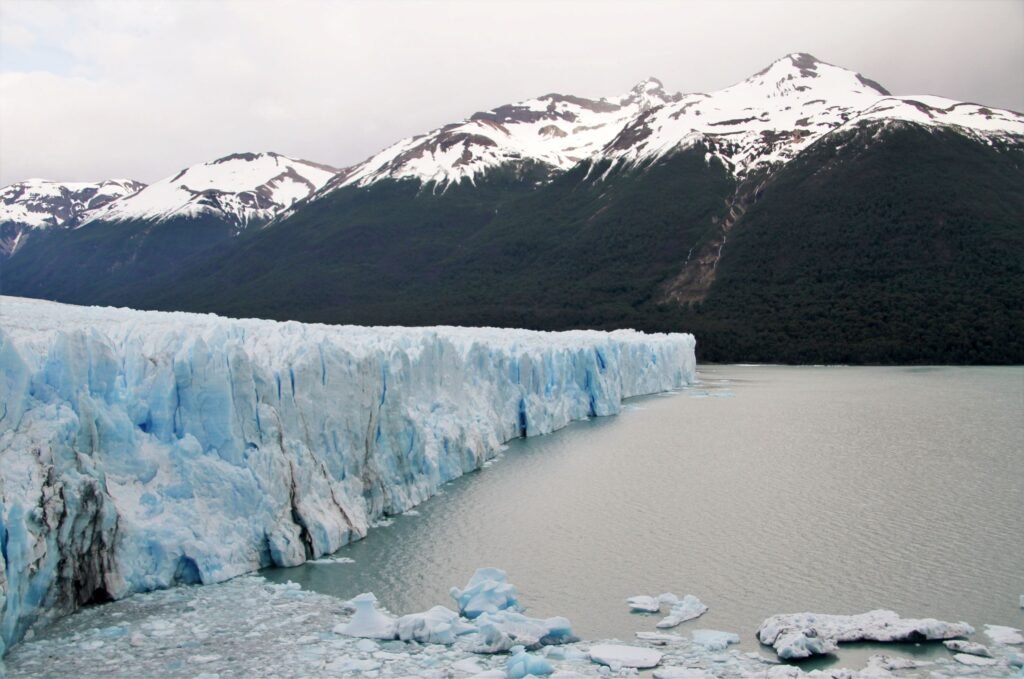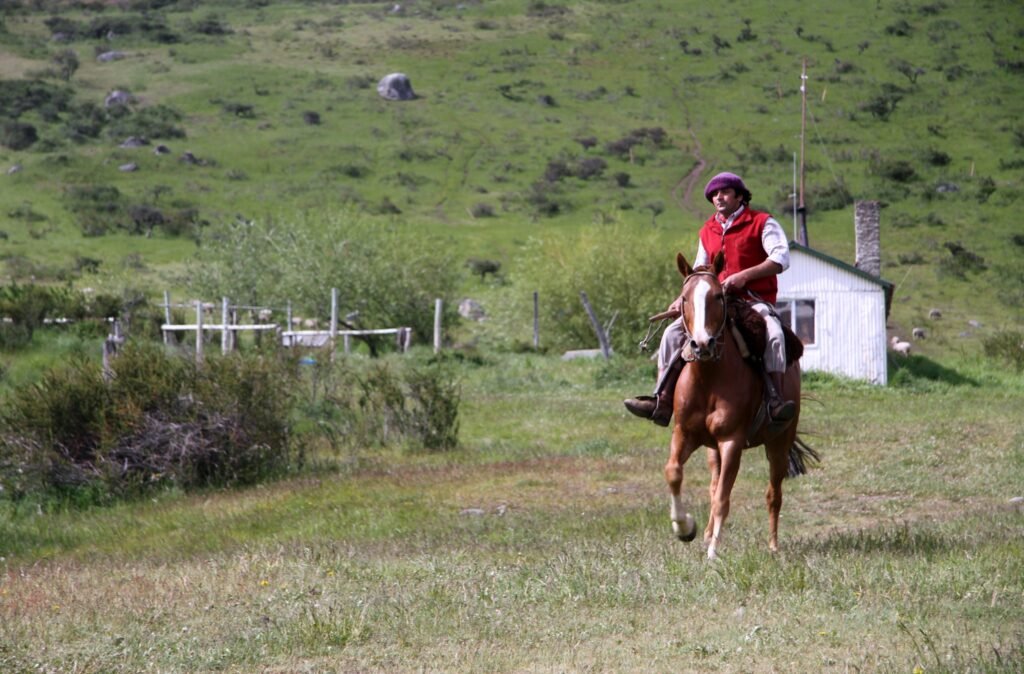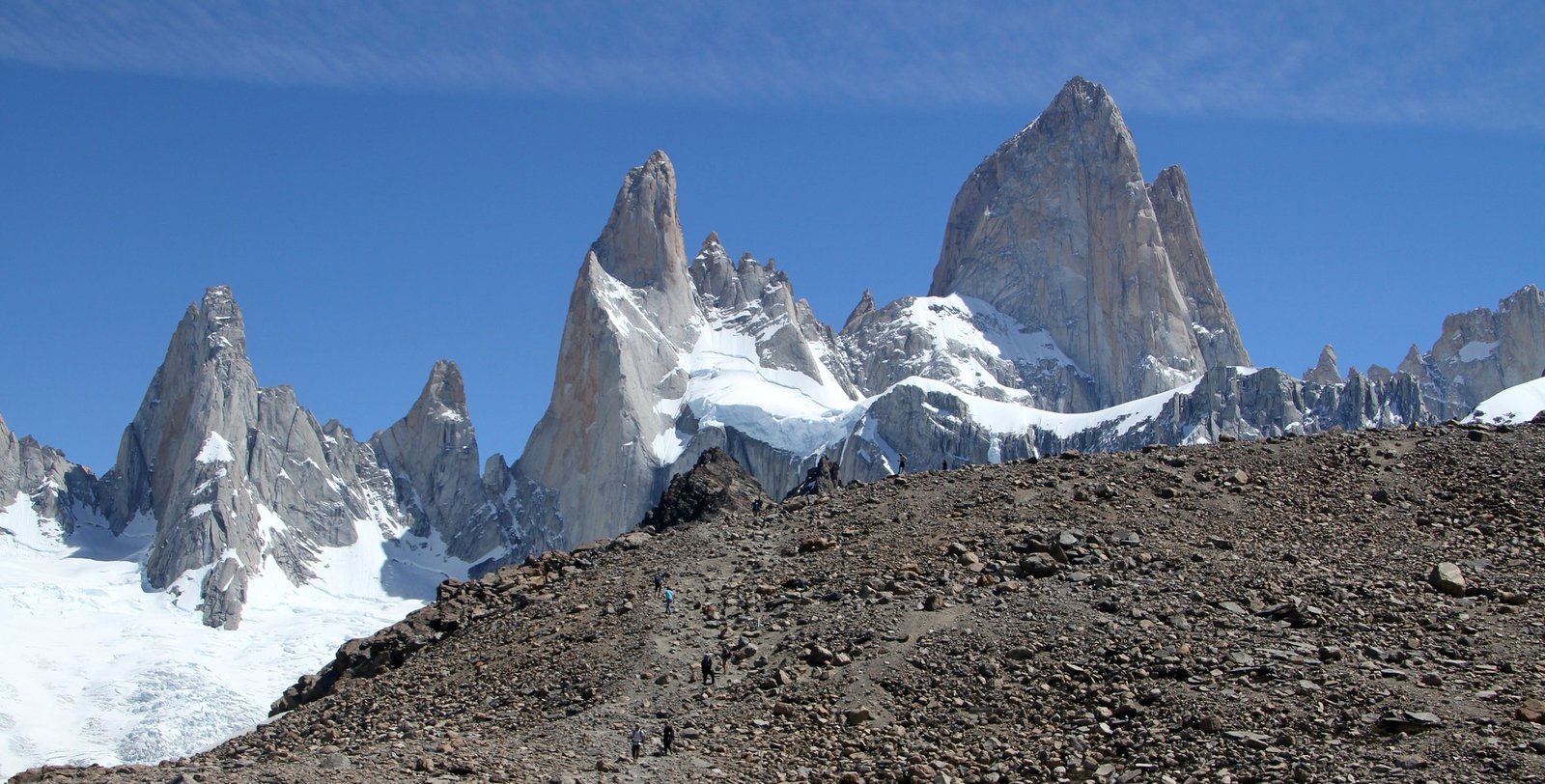Start From The Beginning: Hiking in Argentina
We arrived in El Calafate a bit beat up from two days of hiking in El Chalten. My blisters had blisters, all my hiking socks were dirty and torn, and my supposedly waterproof brand-new hiking shoes were very much soaked through. But none of this put a damper on my excitement. Perito Moreno Glacier hike is a bucket list item for many South American adventurers. This enormous glacier is just 50 miles from El Calafate, can be explored with no climbing experience, and is one of the most famous of Argentina's natural wonders. Fed by the Southern Patagonian Ice Cap, in this time of global warming Perito Moreno is one of the few glaciers in the world that is actively advancing.
We started in Bajo Las Sombras port where we boarded a ferry to take us across Lake Rico. Once on the other side, we trekked for about 40 minutes through the Andean Patagonian Forest and along the shore. At the edge of the glacier, after a brief admiration of the view, it was time to gear up. We strapped crampons on our shoes, traction devices with sharp metal claws to improve mobility on ice, and then tested them out, walking awkwardly in circles on the ice.
“Stomp your feet! Drive the spikes into the ice!” our guide commanded.
Twenty people clumsily stomped around, like newborn calves, occasionally wobbling and losing footing. Finally, we were deemed fit and ready to tackle the glacier. We plodded and teetered, huffing and puffing, deeper into the glacier. We walked over deep cracks and peered into drains, around columns of glacial ice, and circled electric blue lagoons. We saw caves and ice formations, surrounded by endless ice and sky stretching every way, drank clear water straight from the glacier, and ate our lunch sitting on the freezing ice. When it was finally time to turn back, my feet, legs, and lower back hurt like never before. Walking on an uneven surface and having to watch every single step was incredibly tiring for my already exhausted body.
Removing crampons and waking on normal grounds felt like being born again. We crossed a footbridge and ended up on a walkway that curved around the woods with incredible views of the glacier. The 70-meter icy wall rose out of the dark water, sparkling light blue in the cold sun. Occasionally we heard a thundering crack, and a small piece of the glacier would peel off the main body and disappear into the waters below. We could not force ourselves to look away. It felt like a religious experience, a worshipping of a strange and beautiful deity that had no idea humans even existed.


For the next day, Victor had something completely different booked for us. We were heading to a working Argentinian ranch, where we would spend a day riding horses, milking cows, and shearing sheep.
“So, we’ve been hiking for 3 days and now we are going to do actual farm work?” I deadpanned. “Are we getting paid for this?”
Spoiler alert: We were not. We did have to pay around $100 each for the farm visit which included a lovely dinner.
We first spotted our dinner as the minibus pulled up to the farm. A handsome cowboy tipped his hat to us, as he dragged a bleating sheep away from the herd. We immediately learned two things from a charming young woman who welcomed us to the farm. Cowboys in South American lowlands are called gauchos and that sheep was going to be our dinner.


All three of us, unsettled by the mournful bleating sounds still within our hearing range, immediately agreed among ourselves to go vegetarian for this meal. We have been eating a lot of meat during our time in Argentina, where locals are known for their voracious beef consumption habits and our carnivorous meals were a reflection of that. We were assured that there would be plenty of other options on the dinner table and that this sheep would still not be spared, as other guests were arriving that day.
The next few hours flew by. We took turns milking a cow and petting a baby cow. We watched a sheep shearing presentation and someone in our group even tried the feat of balancing the sheep on its ass (a position in which any given sheep immediately becomes placated and stops trying to wriggle free), while wielding large shearing scissors. After witnessing the gaucho cut himself with those scissors, I decided sheep shearing wasn’t for me. We had a long horseback ride around the farm and even took a short walk as well. I especially enjoyed meeting a happy, broadly smiling horse out in the field that seemed to be posing for our pictures. It wasn’t until we were sitting at a large dining room table on the veranda when Ayala mentioned how funny the smiling horse was, that the gaucho explained that a horse showing all its teeth is a sign of aggression, and we were probably going to be bitten if we got any closer.

And with that, dinner was served. Bread, salads, and sides crowded the table, but the clear centerpiece was a large serving plate with piping hot, delicious-smelling mutton. We watched as other guests piled their plates high with tasty cuts of meat, ignoring all side dishes. I was the first to break the meatless pact.
“I mean it’s already dead…” I said reaching for the mutton. “It would just be a waste at this point…”
Eventually, Ayala and Victor followed suit. It was honestly the freshest, most delicious meat I have ever eaten. We raised a toast in gratitude for the sheep’s unwilling sacrifice and the next one to the farm’s hospitality.
The next day, we boarded our flight home and after twelve hours in the air, we finally landed in O’Hare. As we were waiting in the long line at Customs, an automated message played on the loop from the ceiling speakers, all about the dangers of bringing in live animals, plants, fruits, seeds, and insects including the following bit: “If you visited a farm, ranch, or pasture or have been in contact with farm animals, please see your nearest Customs Officer.”
“Are they talking to us?” I asked, sleep-deprived and bewildered, “How did they know?”
Victor later said I spent the rest of the time in that line muttering to myself how delicious that sheep was and how no one could take that away from me.



